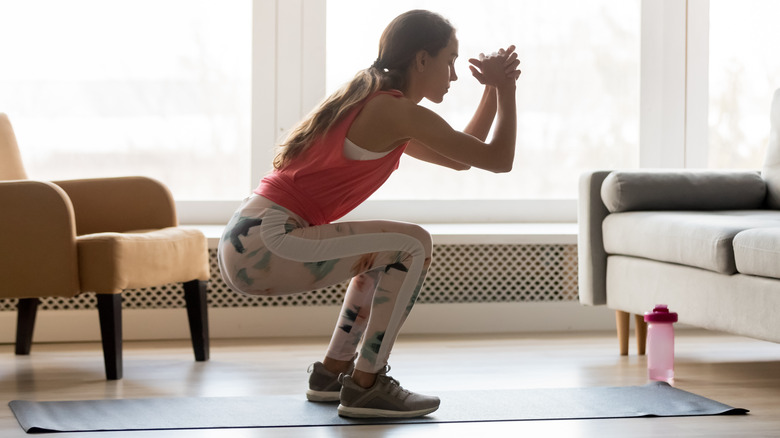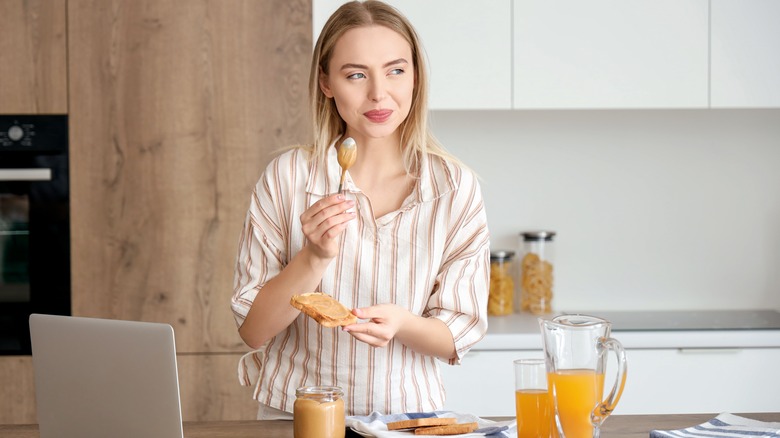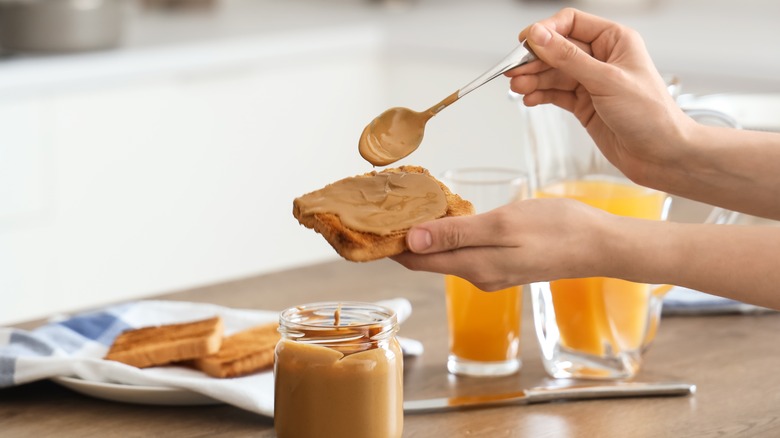Eating Peanut Butter Has An Unexpected Effect On Your Butt
Your butt powers many of the moves you perform each day. The gluteus maximus helps to keep your body upright and propel your body forward when walking or running. Weak glutes could result in injuries to your knees or pain in your back. Let's not forget how the glutes fill out (or not) a great pair of jeans or yoga pants.
Squats, deadlifts, and weighted hip thrusts are exercises that can strengthen your butt and add solid muscle, but you'll need to fuel your body with the right nutrients to firm those muscles and add mass. That means protein. You can load up on as much chicken, eggs, and fish as you like, but you can't port these protein sources in your gym bag for that post-workout fuel. Peanut butter's 7 grams of protein can help fuel your glutes after a strong workout, and its 16 grams of fat (mostly unsaturated) provide sustained energy for several hours.
Peanut butter's amino acids build a better butt
Different protein sources are made of sequences of amino acids that have specific purposes for your body. Twenty amino acids are necessary for your body to function, but your body can make 11 of them. That means you'd only need to get nine amino acids from your diet. Two tablespoons of peanut butter have all nine essential amino acids, and some of these amino acids help with muscle.
Leucine is the amino acid that goes to work on your glutes after several sets of Romanian deadlifts. Peanut butter provides 18% of your daily recommended amount of leucine to build and repair the muscles in the gluteus maximus. Avoid taking leucine supplements because they can slow your metabolism and strain your kidneys. Too much of one amino acid upsets your body's balance.
You'll also need valine to support your muscle growth, and peanut butter gives you 14% of your daily requirement. Methionine plays a role in boosting metabolism and helping your body absorb minerals. Peanut butter has 84 milligrams of methionine.
Too much peanut butter can lead to weight gain
If you're a vegetarian, you might want to avoid using peanut butter as your only protein source. Even though peanut butter is a good source of protein, it's also calorie-dense, meaning that you're getting a lot of nutrition in a small amount. Two tablespoons of peanut butter might make you feel full (and thirsty), but 71% of your 188 calories come from fat.
While two tablespoons of peanut butter might be a fine spread on a sandwich, eating too much peanut butter might add unwanted fat to your butt. If you have a jar of peanut butter handy to dip celery or apples in, it can be easy to take in too many calories for your snack, even if you're in good shape. A 2018 study in the Journal of Exercise and Nutrition found that people who consumed 500 more calories a day by eating peanut butter had gained body fat in just four weeks. Eating peanut butter also won't give you a strong, solid butt unless you do a targeted strength training program.



